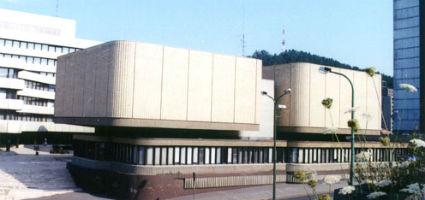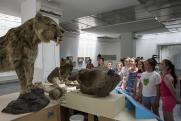2024. May 3. Friday
Bela Dornyay Museum - Salgótarján
 |
Address: 3100, Salgótarján Múzeum tér 2.
Phone number: (32) 520-700
E-mail: titkarsag@dornyaymuzeum.hu
Opening hours: Tue-Sun 9-16
|
The exhibition has closed for visitors.
2014.06.21. - 2014.09.10.
Museum tickets, service costs:
|
Ticket for adults
|
630 HUF
|
/ capita
|
|
Ticket for students
|
315 HUF
|
/ capita
|
|
Ticket for students
(valid for the chamber exhibition)
|
100 HUF
|
/ capita
|
|
Ticket for pensioners
|
315 HUF
|
/ capita
|
|
Ticket for pensioners
(valid for the chamber exhibition)
|
100 HUF
|
/ capita
|
|
Ticket for families
|
1500 HUF
|
|
|
Combined ticket for adults
(valid for the Nógrád Historical Museum + the Mining Exhibition)
|
1050 HUF
|
/ capita
|
|
Combined ticket for students
(valid for the Nógrád Historical Museum + the Mining Exhibition)
|
525 HUF
|
/ capita
|
|
Combined ticket for pensioners
(valid for the Nógrád Historical Museum + the Mining Exhibition)
|
525 HUF
|
/ capita
|
|
Sponsors' ticket
(minimal cost )
|
100 HUF
|
/ capita
|
|
Professional guide
|
3150 HUF
|
|
|
Photography
|
300 HUF
|
|
|
Video
|
500 HUF
|
Global climate change is a so often talked about phenomenon and many people follow the issue these days In what way people are involved in shaping our recent past and especially our future ? It is true that we live in an ice age? What effect did the last ice age have on the environment? What remains of it today? How did changes effected biodiversity? What will happen in 100 years1 time?

